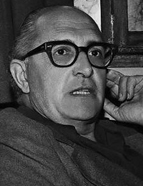

A document in support of MUD signed by members of the Portuguese opposition in October 1961 was among these texts, which led to a request issued by the Portuguese government (1962) for Sena’s arrest and his subsequent ban from entering Portugal – this entry ban would remain in force until 1968 (Santos, “Da arte de ser multiplamente...” [On the art of being multitudinously…], p. 66).
In addition to his reflective work of a political and civic nature, Jorge de Sena also invested in his academic career. In 1962, he completed Uma Canção de Camões [A Song by Camões], his first doctoral and habilitation thesis, which he was prevented from submitting to the Universidade de Belo Horizonte [University of Belo Horizonte]. In 1964, a year after he had acquired Brazilian nationality, he obtained the title of Doctor of Letters and Full Professor of Portuguese Literature with a second thesis entitled Os Sonetos de Camões e o Soneto Quinhentista Peninsular [The Sonnets of Camões and the 16th Century Sonnet in the Peninsula]. Besides positioning Camões within the scope of Mannerism, and favouring both his lyric works and epic poem, in these and other studies Sena interpreted Camões from a historical viewpoint, as if he were his contemporary, humanizing him in his failings as an ordinary man, therefore contradicting the academic tendency to judge the author of the Lusíadas [the Lusiads] through a patriotic filter. Even though Sena was a renowned literary critic and poet in Portugal and had already published several works of which the Pedra Filosofal [Philosopher’s Stone] (1950) and As Evidências [Evidences] (1955), the poem in twenty one sonnets, are particularly noteworthy, the transformation in his life as a result of his exile in Brazil granted him more time to further his work as an essayist, while also allowing him a mental disposition that he had never enjoyed in Portugal to accomplish works that lent a new perspective to the study of Camões. His work Estudos de cultura e literatura brasileira [Studies on Brazilian Culture and Literature], which was published posthumously (1988), also dates back to this period in Brazil. In this work he addresses the issue of Luso-Brazilian cultural relations, regarded by the author as verging on “mutual disinterest” (Estudos de cultura... [Studies on Culture…], p. 57). In 1965, Sena moved to the United States of America to teach at the University of Wisconsin, where he was appointed Full Professor in the Department of Spanish and Portuguese (1967). Between September 1968 and February 1969, he returned to Europe for a number of conferences and visited Portugal, following a period of such long absence. In 1970, he moved to the University of California, in Santa Barbara, as Full Professor of Portuguese and Brazilian Literature and Comparative Literature, where he would remain until his death.
